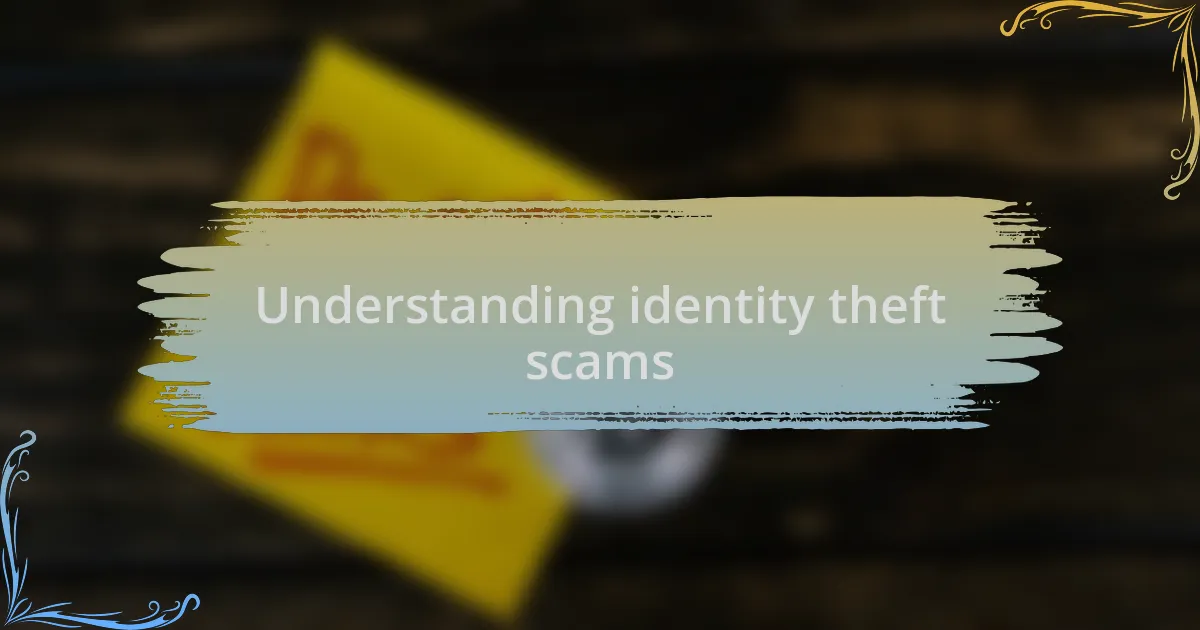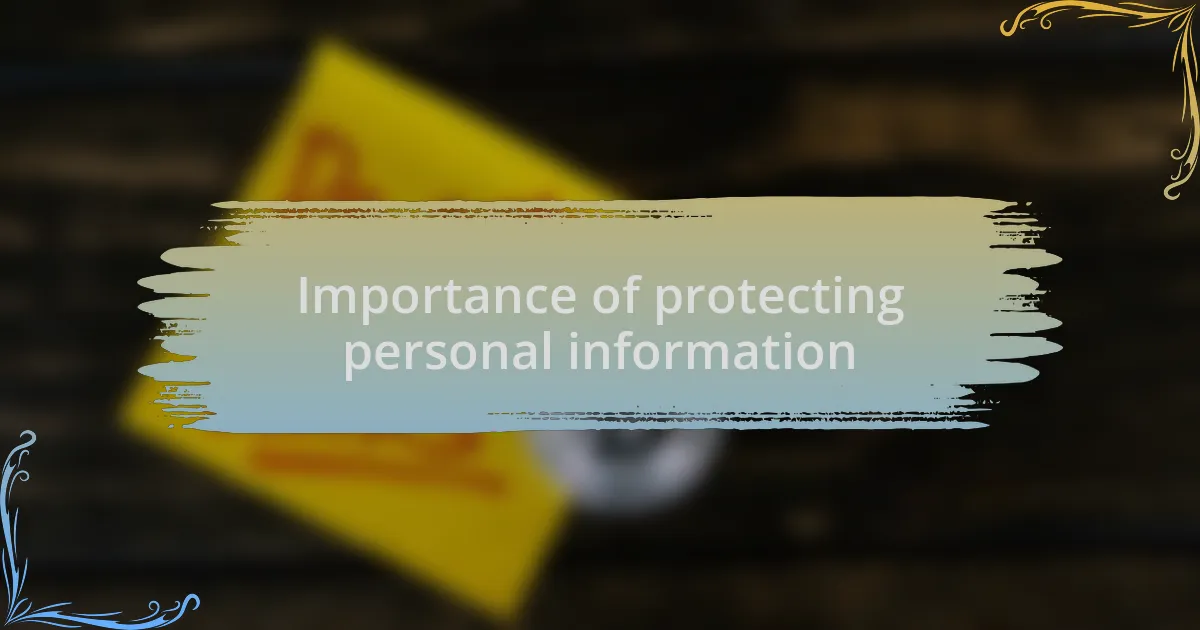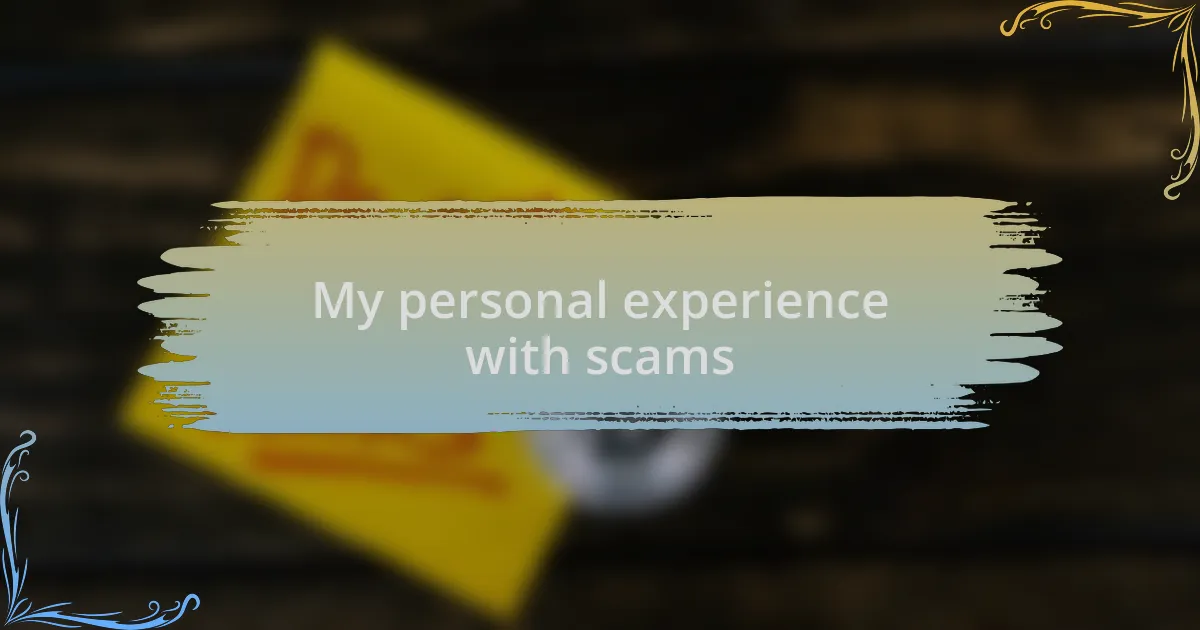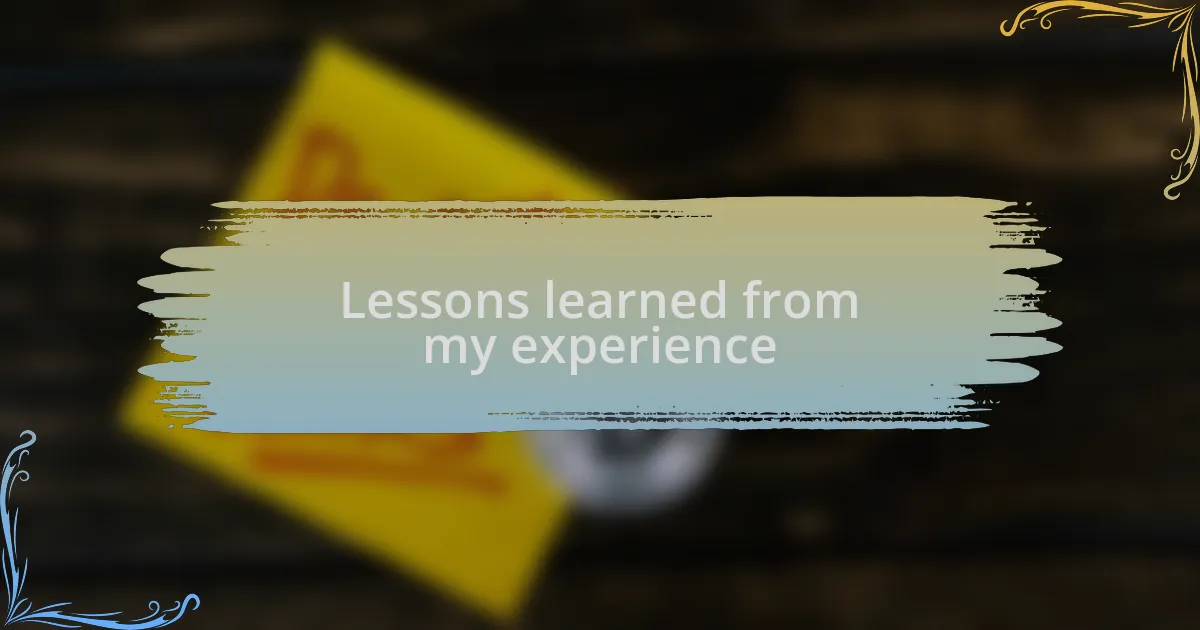Key takeaways:
- Identity theft scams exploit trust and emotions, often through social engineering tactics, making individuals vulnerable.
- Protecting personal information is crucial, as even small details can be exploited by scammers.
- Personal experiences highlight the urgency of skepticism and caution when sharing information online.
- Being proactive, such as freezing credit and staying informed, is essential in defending against identity theft.

Understanding identity theft scams
Identity theft scams are insidious, often preying on unsuspecting individuals by masquerading as trusted entities. I recall a time when I received a seemingly official email asking for my personal information to verify my account. It was alarming how easily someone could infiltrate my life just by crafting a convincing message. Can you imagine how it felt to realize that people could manipulate trust so easily?
These scams are not just about stealing your identity; they impact your sense of security and trust in the digital world. When I learned about a friend who lost their savings after sharing financial details with a scammer, it hit home. I couldn’t help but wonder how many others have faced similar violations, leaving them with a feeling of vulnerability.
Understanding the tactics used in these scams is crucial. Scammers often utilize social engineering, which means they exploit human emotions and instincts to gain access to personal information. Have you ever felt compelled to act quickly on a deal that seemed too good to be true? That’s a classic technique used to sidestep our critical thinking, and it’s important to pause and question the motives behind such offers.

Importance of protecting personal information
Protecting personal information is paramount in today’s digital age. I remember when I shared what I thought was harmless personal data on a social media platform, only to receive unsolicited messages later. It made me realize just how quickly our private lives can be exposed, turning innocuous moments into vulnerable situations.
Even simple details, like your hometown or favorite pet’s name, can be pieced together by clever scammers. I was shocked to discover that a friend had her identity stolen because she had reused passwords across multiple sites. How often do we hear advice about strong passwords, but do we truly heed that warning?
The emotional toll of identity theft can be profound. One day, you’re browsing online without a care, and the next, you’re dealing with the stress of financial loss. I often think about how important it is to safeguard even the smallest pieces of information to prevent a snowball effect that can disrupt your life in ways you never imagined.

My personal experience with scams
It’s surprising how easily scams can infiltrate your life without warning. I recall a time when I received a seemingly innocent email offering a great deal on a product I loved. I clicked the link out of curiosity, and before I knew it, my information was in the hands of scammers. I still shake my head at how quickly trust can turn to regret; it’s a slap in the face that leaves you questioning your judgment.
Once, I found myself on a fake website that mirrored a popular online retailer. It wasn’t until I entered my credit card details that a red flag popped up in my mind. A rush of panic surged through me. Did I just give away my financial information? I quickly checked my bank account, and fortunately, there were no charges yet, but the feeling of vulnerability lingered for weeks. Have you ever felt that knot in your stomach when you realize you might have been tricked? It’s unsettling.
Scams have a unique way of tapping into your emotions, making you feel a mix of confidence and fear in the blink of an eye. I remember discussing this experience with friends, and it struck me how many had similar stories. Each anecdote carried a weight of loss, sometimes monetary, sometimes the loss of peace of mind. It’s these personal connections that remind me why protecting our information matters so much in this digital landscape. How do we build a fortress around our personal data to ensure these encounters don’t define our online experiences?

Lessons learned from my experience
It took me a while to realize that the internet is not as safe as I once thought. One day, while scrolling through social media, I came across a giveaway that seemed too good to be true. My excitement drove me to enter my details without a second thought. This impulsive decision taught me the importance of skepticism; not every deal is a real opportunity, and sometimes, they’re just bait for thieves.
Another lesson hit me when I discovered that the scammers had been monitoring my online behavior. They had used information I had publicly shared against me. It felt like a violation of my personal space, much like someone rummaging through your drawers. This experience taught me to be cautious about what I share online; even seemingly harmless details can be exploited.
Reflecting on these experiences, I realized the importance of an action plan to protect myself. After receiving a notification about a potential identity theft, I quickly froze my credit. It was empowering to take action, but it also brought home the reality that I had to be proactive. Have you ever wondered what steps you would take in such a situation? I learned that staying informed and vigilant is the best defense against potential threats to our identity.